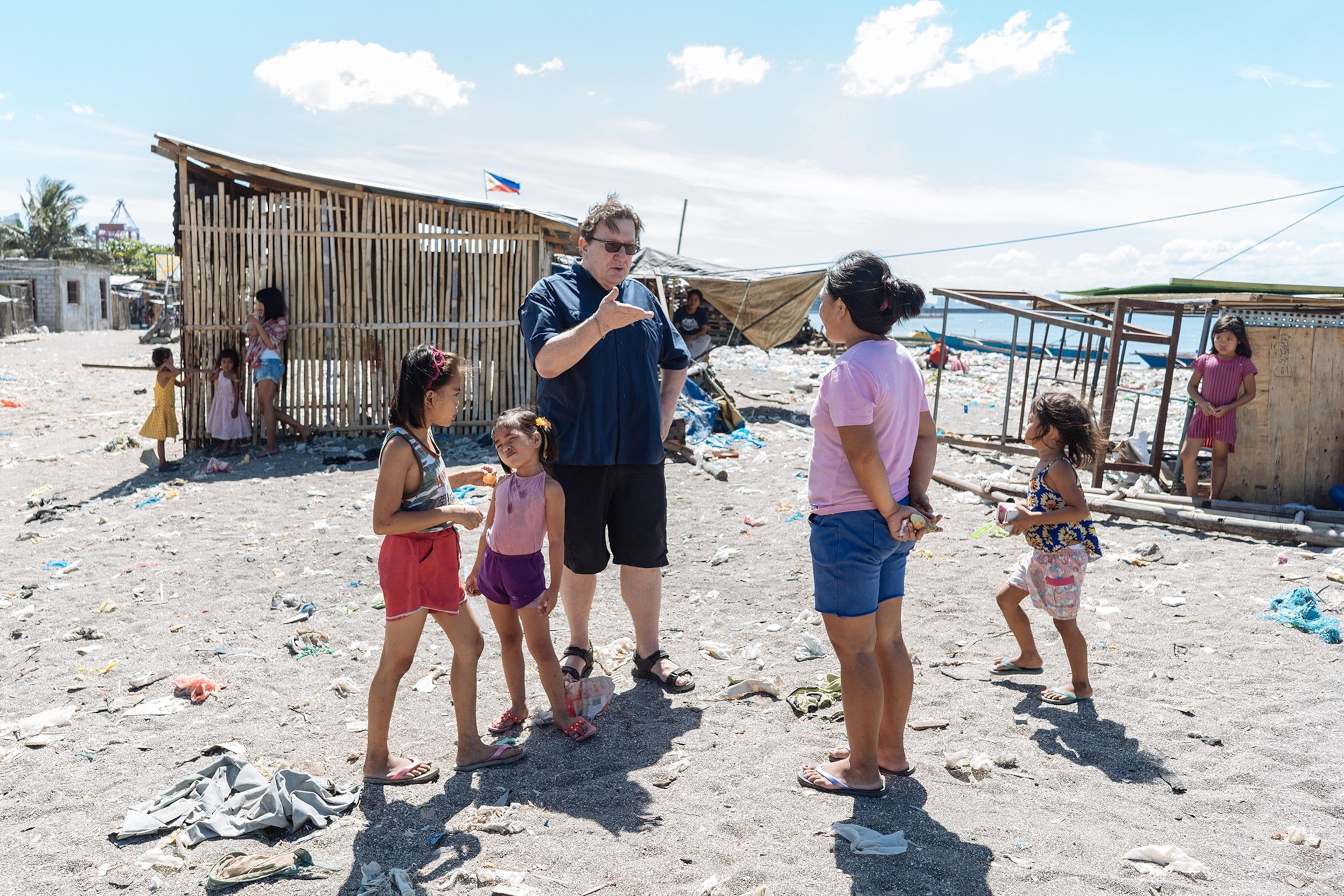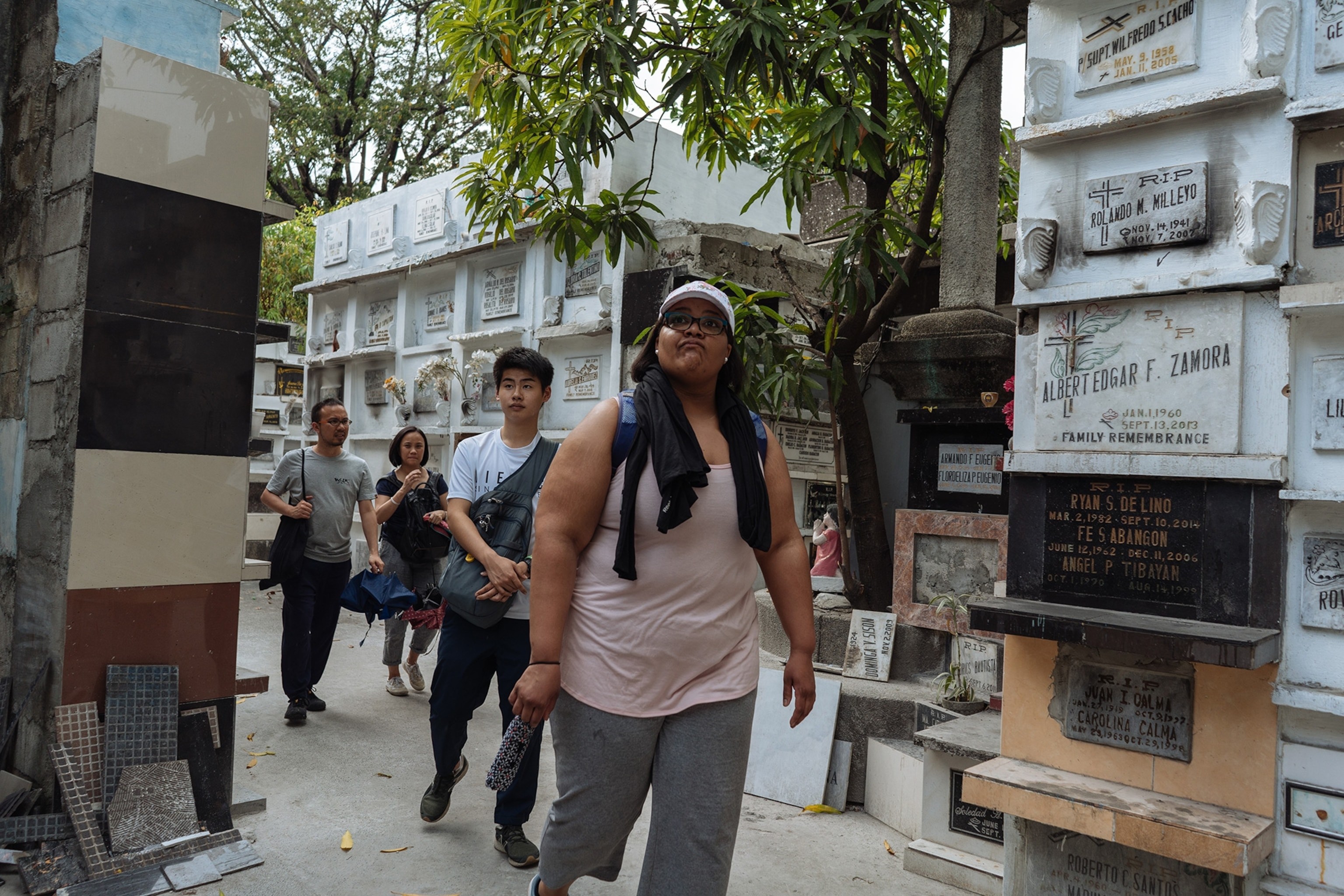Slum tourism, also known as poverty tourism, is when individuals visit impoverished areas, offering a raw glimpse into the lives of marginalized communities; SIXT.VN acknowledges the complexities surrounding this practice and aims to provide information that promotes responsible and ethical travel in Vietnam. By understanding the nuances of slum tourism, you can make informed decisions and potentially contribute positively to the communities you encounter. We offer you all of that with consulting services and support for booking airplane tickets.
1. What is Slum Tourism and Why Does It Exist?
Slum tourism involves visiting impoverished urban areas, offering tourists a glimpse into the lives of residents. It exists because of several key factors:
- Curiosity and Awareness: Many tourists are driven by a desire to witness the realities of life in less fortunate communities and to gain a deeper understanding of global inequality.
- Educational Purposes: Some travelers seek to learn about the social, economic, and political issues that contribute to poverty, using these tours as an educational experience.
- Desire for Authentic Experiences: In contrast to traditional sightseeing, some tourists want more authentic and immersive cultural experiences, seeking to connect with local communities on a more personal level.
- Raising Awareness: Slum tourism can bring attention to the challenges faced by marginalized communities, potentially leading to increased support and resources.
- Economic Benefits: When conducted responsibly, slum tourism can provide economic opportunities for local residents, such as employment as tour guides or support for local businesses.
Slum tourism is a controversial practice with both proponents and critics. It’s crucial to approach it with respect, sensitivity, and a genuine desire to understand and support the communities visited. According to the United Nations, about a quarter of the world’s urban population lives in slums, and this figure is rising fast.
2. What Are Some Examples of Slum Tourism Around the World?
Slum tourism has manifested in various forms across different continents. Here are some notable examples:
| Location | Key Features |
|---|---|
| Dharavi, Mumbai, India | One of Asia’s largest slums, known for its thriving small-scale industries like recycling, pottery, and textiles. Tours focus on showcasing the industriousness and community spirit of the residents. |
| Favelas, Rio de Janeiro, Brazil | Informal settlements often located on the hillsides of Rio. Tours highlight the vibrant culture, art, music, and resilience of the residents. Some tours are run by local residents, ensuring that tourism benefits the community directly. |
| Townships, South Africa | Historically segregated urban areas where black South Africans were forced to live during apartheid. Tours explore the history of resistance, the cultural heritage, and the ongoing challenges faced by these communities. |
| Manila, Philippines | Tours of shantytowns and informal settlements, such as Baseco, offer insights into the daily lives of urban poor. These tours often focus on issues like poverty, sanitation, and access to resources. |
These examples of poverty tourism show the diversity of experiences and impacts associated with this type of travel.
 Slum tourism in the Baseco community in Manila, Philippines
Slum tourism in the Baseco community in Manila, Philippines
3. What Ethical Concerns Are Associated with Slum Tourism?
The ethics of slum tourism are widely debated, with several key concerns:
- Voyeurism and Exploitation: Critics argue that slum tours turn poverty into a spectacle, reducing the lives of residents to a form of entertainment for privileged tourists.
- Lack of Dignity: Residents may feel like they are being put on display, which can be dehumanizing and disrespectful.
- Privacy Issues: Taking photographs without consent and intruding on personal spaces can violate the privacy of residents.
- Unequal Power Dynamics: The inherent power imbalance between tourists and residents can reinforce stereotypes and create an exploitative dynamic.
- Commodification of Poverty: Slum tours can commodify poverty, turning it into a product that can be bought and sold, potentially trivializing the struggles of those living in these areas.
Addressing these ethical concerns requires careful planning, respect for the community, and a commitment to ensuring that tourism benefits residents directly. According to Dr. Melissa Nisbett of King’s College London, poverty was ignored, denied, overlooked and romanticized.
4. What Positive Impacts Can Slum Tourism Have?
When conducted responsibly and ethically, slum tourism can have positive impacts:
- Economic Benefits: Tours can create employment opportunities for residents as guides, drivers, and small business owners.
- Community Development: Some tour operators invest a portion of their profits into community development projects, such as schools, healthcare facilities, and infrastructure improvements.
- Raising Awareness: Slum tours can raise awareness among tourists about the challenges faced by marginalized communities, inspiring them to support social change.
- Empowerment of Residents: By sharing their stories and perspectives, residents can gain a sense of empowerment and agency.
- Cultural Exchange: Slum tourism can foster cultural exchange between tourists and residents, breaking down stereotypes and promoting mutual understanding.
- Increased Investment: Responsible slum tourism can lead to increased investment in the local economy, creating jobs and opportunities for residents.
It is important to choose tour operators that prioritize ethical practices and community benefits to maximize the positive impacts of slum tourism.
5. How Can Slum Tourism Be Conducted Responsibly and Ethically?
Responsible slum tourism requires a commitment to ethical practices and respect for the community:
- Community Involvement: Tours should be developed and managed in collaboration with local residents, ensuring that their voices are heard and their needs are met.
- Fair Compensation: Tour guides and other service providers should be paid fair wages, and a significant portion of the profits should be reinvested in the community.
- Respect for Privacy: Tourists should always ask for permission before taking photographs and avoid intruding on personal spaces.
- Education and Awareness: Tours should provide accurate information about the history, culture, and challenges faced by the community, promoting understanding and empathy.
- Support Local Businesses: Tourists should be encouraged to purchase goods and services from local businesses, contributing to the local economy.
- Avoid Patronizing Behavior: Tourists should treat residents with respect and avoid patronizing or condescending behavior.
- Transparency: Tour operators should be transparent about their business practices, including how profits are used and how the community benefits.
By following these guidelines, poverty tourism can be a force for good, promoting economic development, raising awareness, and fostering cultural exchange.
6. What Are Some Examples of Ethical Slum Tour Operators?
Identifying ethical tour operators is crucial for ensuring that your participation in slum tourism has a positive impact:
| Operator Name | Location | Key Ethical Practices |
|---|---|---|
| Reality Tours and Travel | Mumbai, India | 80% of profits benefit the community through an NGO that provides access to healthcare and educational programs. Photography is not allowed. |
| Favela Walking Tour | Rio de Janeiro, Brazil | Employs local guides from the favelas, ensuring that tourism revenue directly benefits residents. |
| Smokey Tours | Manila, Philippines | Tours around Baseco near the port, located in the same crowded district and known for its grassroots activism. |
| Uthando (Love) South Africa | Cape Town, South Africa | Supports a range of community development projects, including schools, orphanages, and income-generating initiatives. |
| ZATours | Medellín, Colombia | Employs local guides from Comuna 13, a formerly dangerous neighborhood, providing them with employment and empowering them to share their stories. |
These tour operators demonstrate a commitment to ethical practices and community benefits, making them good choices for responsible poverty tourism. According to Chris Way, co-founder of Reality Tours and Travel, “We do try and be as transparent as possible on our website, which does allay many people’s fears.”
 A slum tour in the Manila North Cemetery, Philippines
A slum tour in the Manila North Cemetery, Philippines
7. How Can Tourists Prepare Themselves for a Slum Tourism Experience?
Preparation is key to ensuring a respectful and meaningful slum tourism experience:
- Research: Learn about the history, culture, and current issues facing the community you plan to visit.
- Choose an Ethical Operator: Select a tour operator with a proven track record of responsible practices and community benefits.
- Be Respectful: Dress modestly, be mindful of your behavior, and treat residents with dignity and empathy.
- Ask Questions: Engage with your guide and residents, asking thoughtful questions to gain a deeper understanding of their lives.
- Listen: Pay attention to the stories and perspectives shared by residents, and be open to learning from their experiences.
- Support Local Businesses: Purchase goods and services from local businesses to contribute to the local economy.
- Be Aware of Your Privilege: Recognize the inherent power dynamics at play and avoid patronizing or condescending behavior.
- Reflect: Take time to reflect on your experience and consider how you can continue to support the community after your visit.
By preparing themselves in this way, tourists can ensure that their participation in slum tourism is both respectful and impactful.
8. What Alternatives Exist to Traditional Slum Tourism?
If you are concerned about the ethical implications of traditional poverty tourism, there are alternative ways to engage with and support marginalized communities:
- Community-Based Tourism: Participate in tourism initiatives that are owned and managed by local communities, ensuring that they directly benefit from tourism revenue.
- Volunteering: Volunteer with local organizations that are working to address the root causes of poverty and inequality.
- Supporting Local NGOs: Donate to or fundraise for local non-governmental organizations that are providing essential services and support to marginalized communities.
- Ethical Shopping: Purchase goods and services from fair trade organizations and social enterprises that are committed to ethical practices and community development.
- Education and Advocacy: Educate yourself and others about the issues facing marginalized communities, and advocate for policies and practices that promote social justice.
- Visit Cultural Centers and Museums: Explore cultural centers and museums that showcase the history, culture, and experiences of marginalized communities.
- Attend Community Events: Participate in local festivals, celebrations, and other community events to engage with residents in a respectful and meaningful way.
These alternatives offer opportunities to support marginalized communities in ways that are empowering, respectful, and sustainable.
9. How Does Slum Tourism Differ in Developing vs. Developed Countries?
Slum tourism can manifest differently in developing and developed countries due to varying socioeconomic and political contexts:
| Feature | Developing Countries | Developed Countries |
|---|---|---|
| Scale of Poverty | Poverty is often widespread and deeply entrenched, with large populations living in informal settlements and lacking access to basic services. | Poverty may be more concentrated in specific areas, with smaller populations living in disadvantaged neighborhoods. |
| Infrastructure | Infrastructure is often lacking or inadequate, with limited access to clean water, sanitation, and healthcare. | Infrastructure is generally more developed, but disadvantaged neighborhoods may still experience disparities in access to services. |
| Political Context | Political instability, corruption, and lack of governance can exacerbate poverty and inequality, making it difficult to address the root causes of these issues. | Social safety nets and government programs may be more robust, but disadvantaged neighborhoods may still face systemic barriers and discrimination. |
| Tourist Motivations | Tourists may be motivated by a desire to witness extreme poverty and gain a deeper understanding of global inequality. | Tourists may be motivated by a desire to learn about the history of social movements, explore urban subcultures, or support community development initiatives. |
| Ethical Considerations | Ethical considerations may be more complex, as the power dynamics between tourists and residents can be more pronounced. | Ethical considerations may focus on issues of gentrification, displacement, and the potential for tourism to exacerbate existing inequalities. |
| Examples | Dharavi in Mumbai, Favelas in Rio de Janeiro, Townships in South Africa, Slums in Manila. | Public housing projects in the United States, disadvantaged neighborhoods in European cities, Indigenous communities in Australia. |
Understanding these differences is crucial for approaching slum tourism in a way that is both respectful and impactful.
10. What Role Does Technology Play in Slum Tourism?
Technology has a significant impact on slum tourism, both positive and negative:
- Information and Awareness: The internet and social media can raise awareness about poverty and inequality, inspiring people to visit marginalized communities and support social change.
- Booking and Logistics: Online platforms make it easier for tourists to book tours and arrange transportation, increasing the accessibility of poverty tourism.
- Photography and Documentation: Smartphones and social media allow tourists to document their experiences, sharing images and stories with a wider audience.
- Ethical Concerns: The ease of taking and sharing photos can raise ethical concerns about privacy, dignity, and the potential for exploitation.
- Community Empowerment: Technology can empower residents to share their own stories and perspectives, challenging stereotypes and promoting cultural exchange.
- Economic Opportunities: Online platforms can provide economic opportunities for local businesses and tour operators, allowing them to reach a global audience.
- Virtual Tours: Virtual tours and documentaries can offer a way to experience poverty tourism without physically visiting marginalized communities, reducing the potential for negative impacts.
Navigating the role of technology in slum tourism requires a careful balance between promoting awareness and respecting the rights and dignity of residents.
 The Baseco neighborhood is located on the Pasig river near the city port, but lacks access to clean drinking water
The Baseco neighborhood is located on the Pasig river near the city port, but lacks access to clean drinking water
FAQ About Slum Tourism
-
Is slum tourism ethical?
The ethics of slum tourism are complex and depend on how it is conducted. When done responsibly, with community involvement and benefits, it can raise awareness and support local economies. However, it can be unethical if it exploits residents or violates their privacy. -
What are the main concerns about slum tourism?
Main concerns include voyeurism, exploitation, lack of dignity for residents, privacy issues, and the commodification of poverty. -
What are the potential benefits of slum tourism?
Potential benefits include economic opportunities for residents, community development, raising awareness, empowerment of residents, and cultural exchange. -
How can I ensure my slum tourism experience is ethical?
Choose tour operators that prioritize community involvement, fair compensation, respect for privacy, and education. Support local businesses and avoid patronizing behavior. -
What are some examples of ethical slum tour operators?
Examples include Reality Tours and Travel in Mumbai, Favela Walking Tour in Rio de Janeiro, and Uthando (Love) South Africa. -
How should I prepare for a slum tourism experience?
Research the community, choose an ethical operator, be respectful, ask questions, listen to residents, support local businesses, and be aware of your privilege. -
Are there alternatives to traditional slum tourism?
Yes, alternatives include community-based tourism, volunteering, supporting local NGOs, ethical shopping, and education and advocacy. -
How does slum tourism differ in developing vs. developed countries?
In developing countries, poverty is often widespread with limited infrastructure. In developed countries, poverty may be more concentrated, with more developed infrastructure but potential issues of gentrification. -
What role does technology play in slum tourism?
Technology raises awareness, facilitates booking, allows documentation, but also poses ethical concerns about privacy and exploitation. It can also empower residents and create economic opportunities. -
How can slum tourism empower local communities?
Slum tourism can empower local communities by creating jobs, supporting local businesses, giving residents a platform to share their stories, and fostering cultural exchange.
Navigating the world of slum tourism requires a deep understanding of its complexities and a commitment to ethical practices. While the concept of visiting impoverished areas may raise eyebrows, responsible engagement can foster positive change. SIXT.VN encourages travelers to approach such experiences with sensitivity, respect, and a genuine desire to learn and contribute.
Ready to explore Vietnam responsibly? SIXT.VN offers a range of services designed to make your journey seamless and meaningful. From personalized travel consulting to reliable airport transfers and handpicked hotel accommodations, we prioritize your comfort and ethical engagement. Discover the beauty of Vietnam with SIXT.VN, where every journey is an opportunity for positive impact. Contact us today to start planning your trip! You can reach us at Address: 260 Cau Giay, Hanoi, Vietnam. Hotline/Whatsapp: +84 986 244 358. Website: SIXT.VN. We look forward to helping you create unforgettable and ethical travel experiences!
(LSI Keywords: Poverty tourism, reality tours, ethical travel, responsible tourism, community-based tourism)



